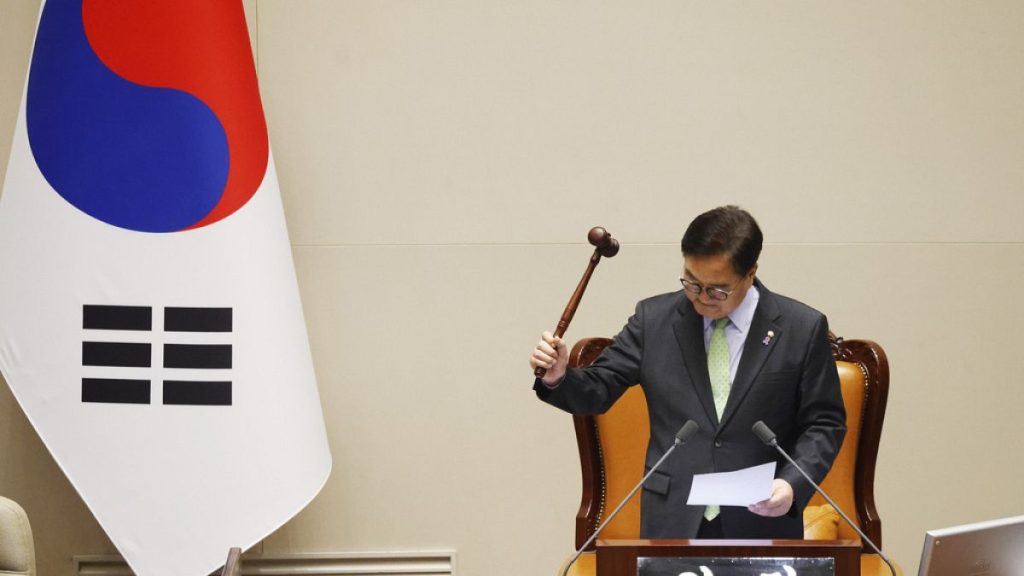South Korea teeters on the precipice of a full-blown political crisis as the National Assembly prepares for a second impeachment vote against President Yoon Suk-yeol this Saturday. The catalyst for this extraordinary situation is Yoon’s short-lived attempt to impose martial law, a move he justified as necessary to quell alleged anti-state activities and parliamentary obstruction. This drastic action, however, backfired spectacularly, drawing widespread condemnation and intensifying calls for his resignation from both the opposition and factions within his own party. The upcoming vote will require a two-thirds majority, or 200 out of 300 members, to pass. Should the impeachment motion succeed, it will be referred to the Constitutional Court for final adjudication.
The impeachment process itself entails a period of suspended powers for President Yoon, pending the Constitutional Court’s decision. During this interim period, Yoon, who is already subject to a criminal investigation for alleged treason and a travel ban, will effectively be on leave. He will remain in this state of political limbo until the court delivers its verdict, which could ultimately result in his removal from office. If removed, a snap presidential election must be held within 60 days to choose his successor. This adds another layer of uncertainty to an already volatile political landscape.
Yoon’s brief declaration of martial law, though rescinded within hours, has left an indelible mark on his presidency. His attempt to deploy troops around parliament and the electoral commission, ostensibly to combat alleged North Korean sympathizers and anti-state actors, was met with staunch resistance. The National Assembly swiftly and unanimously voted down the measure, forcing Yoon to retract his order. Despite issuing a public apology, acknowledging the anxiety and inconvenience caused by his actions, Yoon remains defiant, vowing to “fight to the end” and defend his decision, which he attributes to “desperation.” This unwavering stance has further alienated his critics and deepened the political divide.
The legal basis for Yoon’s martial law declaration remains highly contested. South Korean law restricts the invocation of martial law to times of war or comparable emergencies, conditions that many argue were not present. Critics have labeled Yoon’s move as “unconstitutional” and an overreach of executive power. The incident has not only fueled the impeachment drive but also eroded public trust in the president’s judgment and leadership. The first impeachment attempt, though unsuccessful due to a boycott by Yoon’s party, highlighted the growing dissent within the ruling ranks.
Yoon’s presidency has been marked by a persistent power struggle with the opposition-controlled parliament. Since taking office in 2022, he has faced significant challenges in advancing his legislative agenda and has grappled with consistently low approval ratings. Scandals involving both himself and his wife have further contributed to his political woes. His characterization of the parliament as a “den of criminals” and his rhetoric targeting alleged North Korean sympathizers have only exacerbated tensions and fueled the opposition’s resolve to remove him from office.
The current political turmoil has far-reaching implications for South Korea, paralyzing its political system and causing concern among its key international allies, including the United States and Japan. The impeachment process, regardless of its outcome, will likely have a lasting impact on the country’s political stability and its relationship with the international community. The coming days will be crucial in determining the fate of President Yoon and the future direction of South Korean politics. The second impeachment vote will be a pivotal moment, revealing the depth of opposition to Yoon’s leadership and setting the stage for the next chapter in this unfolding political drama.














